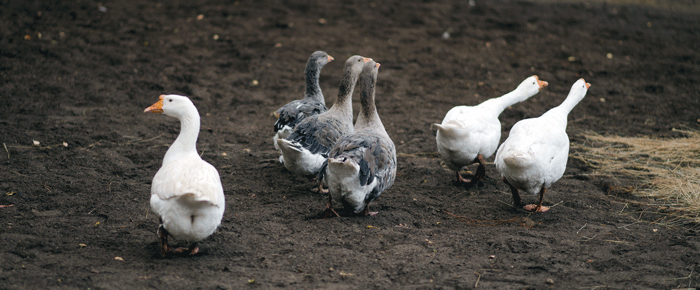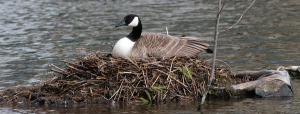What to do with a goose nest and eggs?
 What should you do if you find a goose nest and eggs on your property? You might feel tempted to simply pick it up and move it to a different location, such as the woods or a park, but it’s important that you take the proper steps in regards to goose nests with eggs. The following guide will help you learn what to do if you come across a goose nest with eggs on your property.
What should you do if you find a goose nest and eggs on your property? You might feel tempted to simply pick it up and move it to a different location, such as the woods or a park, but it’s important that you take the proper steps in regards to goose nests with eggs. The following guide will help you learn what to do if you come across a goose nest with eggs on your property.
Can you remove a goose nest and eggs from your property?
No. You should not remove a goose nest with eggs from your property. Moving a goose nest will interfere with the development of the eggs and significantly increase the chances that the adult geese will abandon the eggs.
What should you do if you find a goose nest and eggs on your property?
Since you shouldn’t move a goose nest with eggs, the question remains: what should you do if you come across a nest with eggs on your property? The following are the most important steps you should take after spotting a goose nest.
Do not move the nest at all.
Do not move the goose nest at all, especially if there are currently eggs inside. It is important that you leave the nest completely alone—don’t touch the eggs, nest, or the surrounding area. You can remove potential hazards from the area if necessary, such as items you think could fall over onto the nest, but otherwise leave the nest alone.
Wait for the eggs to hatch.
You will need to wait for the goose eggs to hatch before you can take any action. Most goose eggs will hatch within a few weeks. This requires patience, but remember, it’s in the best interest of the geese that you let the eggs hatch before taking any action.
Make the site unappealing for future nests after hatching
Once the eggs have hatched and the geese have walked away with their new chicks, it’s time to make the former nesting site as unappealing as possible. This will help prevent additional geese from making your property a nesting ground. Some of the ways you can make your property unappealing include:
- Letting your grass grow tall or planting tall varieties of grass; this will make geese feel less protected, since potential predators could be hiding in the tall grass, and subsequently make it a less appealing nesting site
- Plant trees and tall bushes; as with tall grass, the presence of lots of trees, tall bushes, and even shrubs will make an area unappealing as a nesting site.
- Install “scary” décor; setting up “scary” décor such as decoy predator heads and even flags specifically designed to deter geese will make them less likely to nest in the area.
- Chase away geese when they land; if you spot geese scoping out your property, scare them off by chasing them (be careful and watch for signs of aggression!) so they won’t stay.
Remember to keep the above information in mind when you spot a goose nest with eggs on your property.
